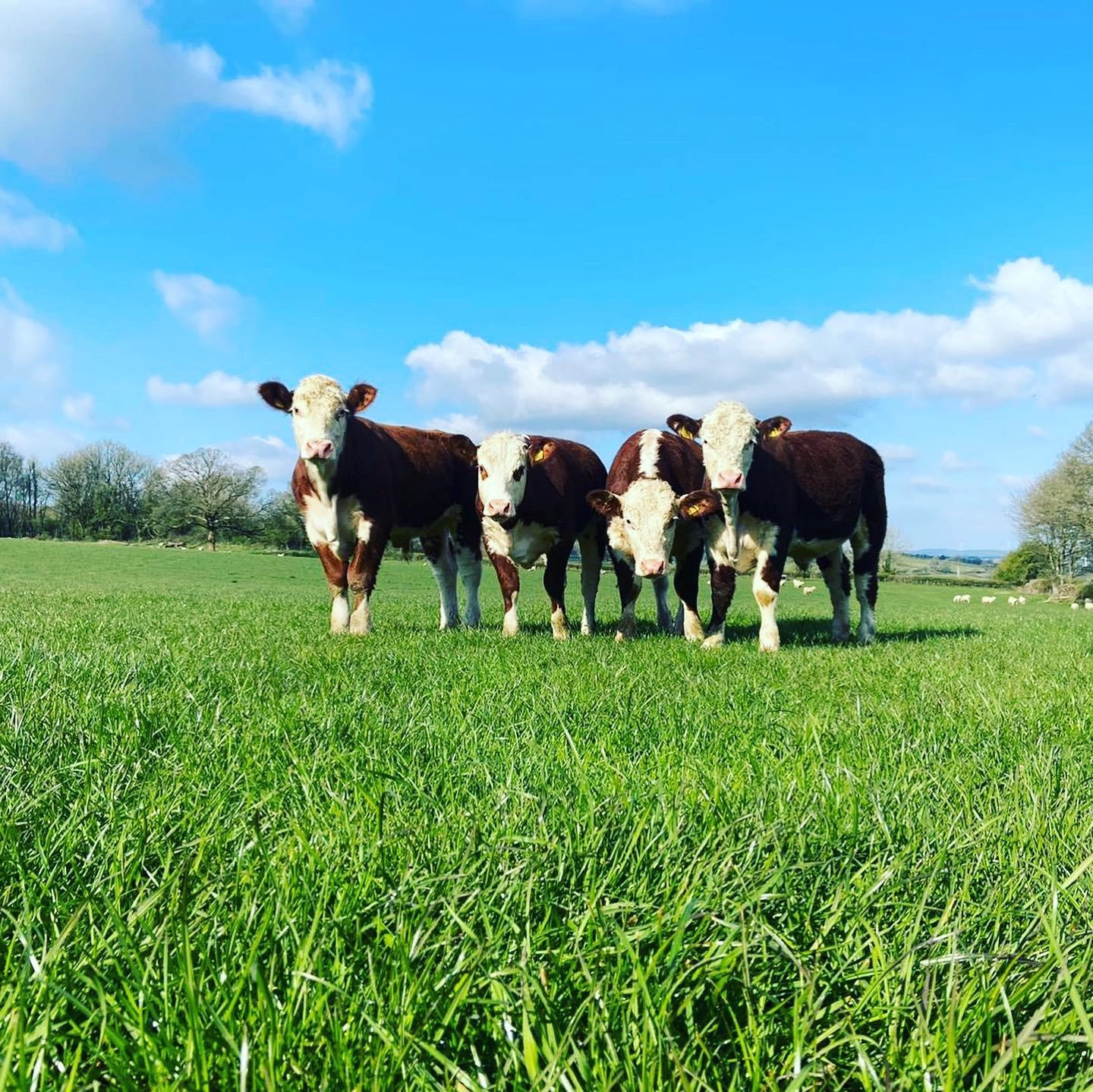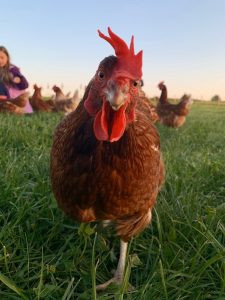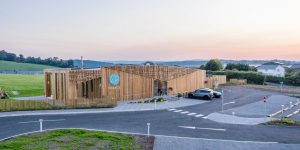AF Changemaker: Penllyn Estate
22 August 2022
I'm Andrew Shackell, Penllyn Estate Manager. I've been here for over 40 years. I'm working for the third generation of owners, the Humphrey family. I started as a stockman and worked up to estate manager. Overall the estate covers around 760 hectares. It’s mainly in a single area. We’re not far from Cardiff, which is about 15 miles away. It’s quite an affluent area which is why we set up the farm shop. We employ 40 people. 14 in the course of the farming side of the estate, the rest are in the farm shop.We are a diversified estate. We've got the traditional and arable livestock operations complemented recently by a 24,000 bird free range egg unit. We’ve applied for planning permission to increase by another 16,000.
We used to be very heavily into beef, around 1400 head, supplying Dovecote Park. We have shrunk the beef operation to a herd of around 100, to feed mainly into the farm shop now. All the beef sheds have been turned into rental units for small businesses.
The farm shop opened in 2020, just as the Coronavirus pandemic hit which caused of all sorts of problems. We put our own beef, pig and sheep meat as well as eggs through the shop. It's got a kitchen attached to it also. The shop is focused very heavily on local Welsh produce. That's our USP, our ethos: support local suppliers.
We have also got solar panels dotted around the place, and a small hotel with six rooms. In the autumn of 2018, we planted two hectares of truffle trees. So we’re hoping we might have some black truffles from them in another two years. I hope so anyway! We've also got a nudist camp (I'm not a member by the way!). The site is rented out to a local group where they have around 30 static caravans. And we have a waste transfer station on the estate that is operated by the local Council. They sort and collect the waste from there, where it is then taken to be recycled. We like that sustainability aspect.We hold a pumpkin festival each year, a Christmas experience at the farm shop, a cross country race and we are also planning a music festival to raise money for charity.
We want to get away from supported agriculture, from support payments. We are in a great spot for a farm shop, we've got excellent infrastructure for people to come to the shop. And a great view of the Stour Valley. There are obviously some parts of agriculture that aren't very profitable. So we needed to secure business resilience and sustainability. We couldn't sustain the estate if we didn't diversify.
We have certainly started to see results. I think we're much closer to a resilient and sustainable business than we were two or three years ago. The chickens have made the biggest difference, especially to cashflow.

I will be honest, the shop is hard work. We had no retail experience whatsoever. The closest we’d ever got to retail was probably going to do our shopping! So that has been a very, very steep learning curve. Between that and opening in a pandemic, the shop has definitely been a struggle. But there is light at the end of the tunnel with it now and we are confident that in the years to come, we will be a much better placed business to weather any storms that might appear on the horizon. And we've achieved our goal of moving away from the mainstream agricultural support system.
AF helps with our energy bills. They always get us the best value for that. And they can be good on the mainstream inputs as well such as fertiliser. And to be honest, whatever else we need AF to help us with. We run a Pumpkin Festival and I bought 60 wheelbarrows from the General Inputs team, they were very competitive on those. We’re looking at planting more trees and hedgerows in the next few years and we’ll work with AF to source those.
At the minute, we really need to tame the beast which is Forage, our farm shop.

A couple of years ago we had a meeting and put together a five year strategic plan. I think we’ve already accomplished most of what we set out to do. So there will be another meeting and we will work out what will happen over the next five years.We are in talks with a company at the minute to lease some land to them for solar for hydrogen production. That's hydrogen will be used to power some local councils’ refuse vehicles.
We’re looking to build the additional chicken shed in the next year. And we are in talks with a company that is looking to set up a vertical farm on the estate so we’re looking at whether we have a suitable site for that.And we might take a breather at some point!